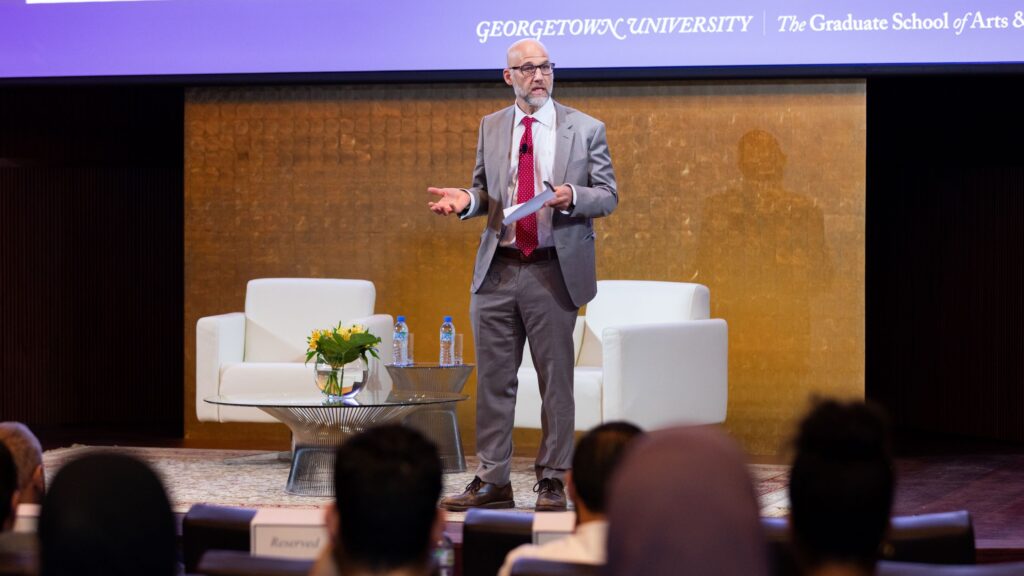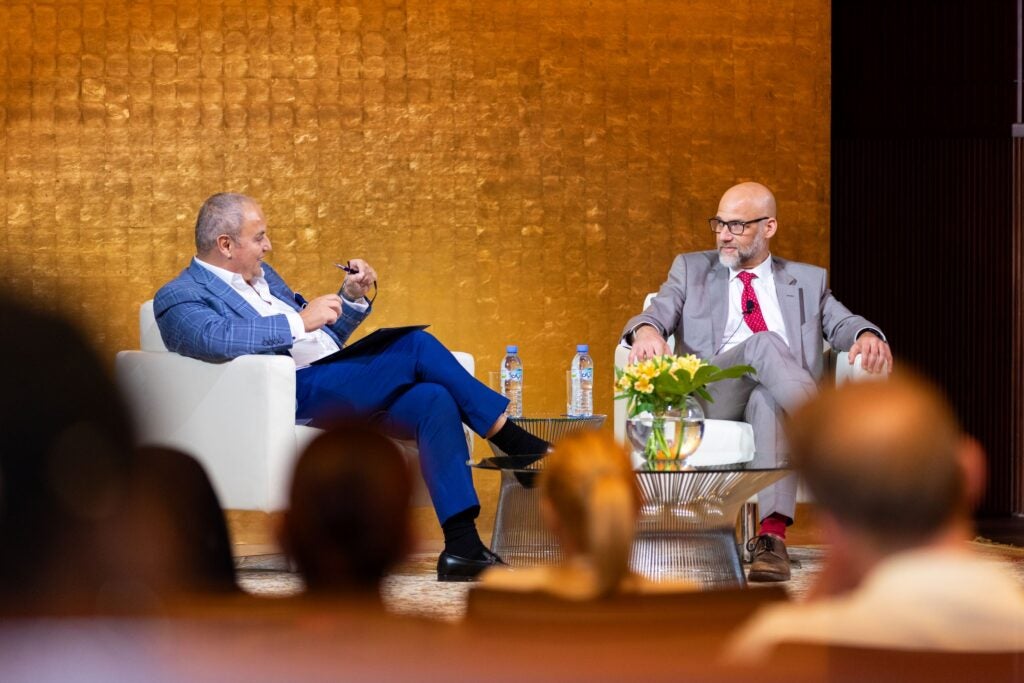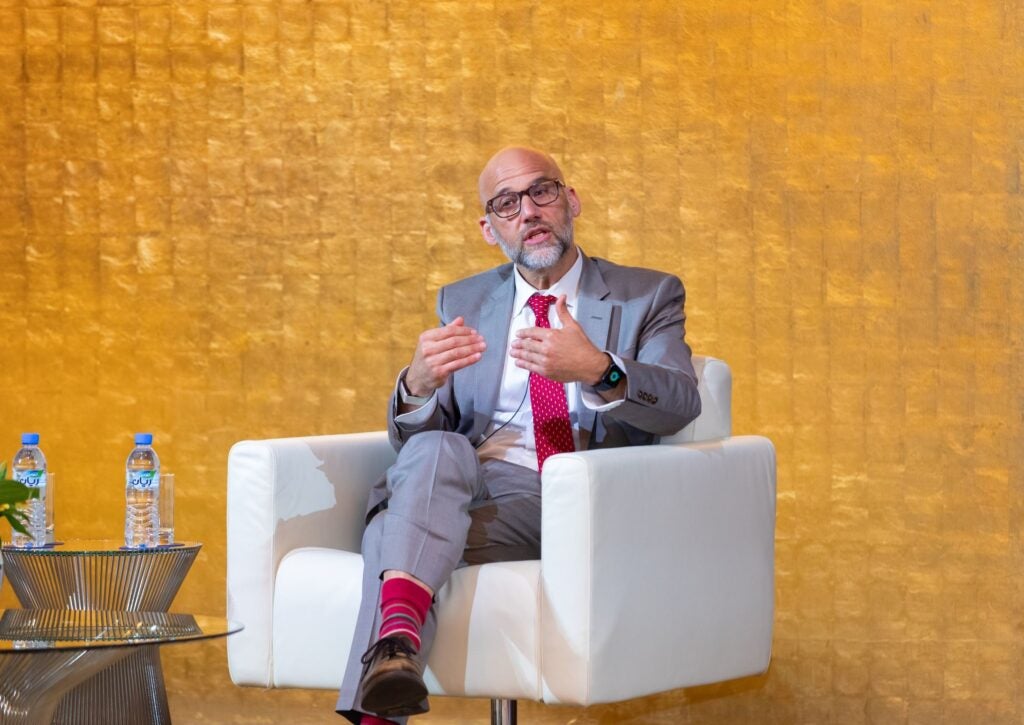Georgetown Qatar Talk Connects the Ancient Greek Tradition to Modern Challenges

A thought-provoking talk at Georgetown University in Qatar (GU-Q) explored how ancient Greek writers, confronted by massive cultural disruptions strikingly similar to the present times, helped society make sense of their changing world.
Dean Safwan Masri hosted the event, which featured Dr. Alexander Sens, Dean of the Graduate School of Arts and Sciences at Georgetown University in Washington, DC, and the Markos and Eleni Tsakopoulos-Kounalakis Professor of Hellenic Studies.

Dean Masri underscored the value of studying the classics today, especially as the humanities focus on the geopolitical challenges of the 21st century. “It is my firm belief that we cannot understand the present or plan the future without first exploring and appreciating history, in all its dimensions. Since the classics are history’s birthplace, they are incredibly important to us today,” he noted.
Pointing to the parallels with upheavals in the modern world, Dr. Sens described the turmoil following the death of Alexander the Great in the fourth century, marked by civil war and mass migrations to new, multiethnic Hellenistic megacities like Alexandria and Antioch. In the aftermath of these disruptions, the poets writing in this “new world,” with fundamentally changed concepts surrounding citizenship and ethnic identity, tried to demonstrate the continuity of the literary tradition.
“They recognized how complicated traditions were, and they were trying to make sense of where they stood,” said Dr. Sens. Confronting these tensions, the writers found ways to engage with the poetic tradition to create meaning in their profoundly new contexts.

Drawing from the works of ethnically Greek and other writers from across the Hellenic diaspora, he showed how the writers experimented with the boundaries of genre and voice, even inventing new literary forms.
“They didn’t see themselves as simply the heirs of this past but also recognized that there had been a huge gulf,” he said, adding that today’s artists wrestling to make sense of their place when established traditions have been disrupted are not unique— the search for reinvention and renewal is a time-honored literary tradition.
The talk concluded with a vibrant exchange of ideas with attendees and members of the GU-Q community, which further considered the historical context of contemporary issues.